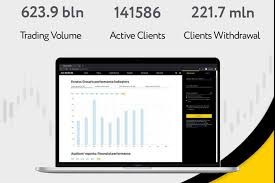
Understanding the Exness Economic Calendar for Trading Success
The exness economic calendar Exness broker economic calendar serves as a critical tool for traders, helping them to keep track of economic events that can significantly influence the financial markets. With various indicators released regularly, understanding how to navigate this calendar can empower traders to make informed decisions, ultimately enhancing their chances of success.
What is an Economic Calendar?
An economic calendar is a schedule of upcoming economic events, often including data releases and reports that may impact financial markets. These events can include employment reports, GDP announcements, central bank meetings, and inflation reports, which all reflect the health of an economy. For traders, awareness of these events is essential as they can lead to increased volatility and create trading opportunities.
The Importance of the Exness Economic Calendar
The Exness Economic Calendar is designed to provide users with real-time updates on economic events around the globe. The calendar categorizes events by their anticipated impact on the markets (high, medium, or low), allowing traders to prioritize their attention. By staying aware of what economic data is scheduled for release, traders can prepare their strategies accordingly.
Key Features of the Exness Economic Calendar
1. Real-Time Data: The calendar is updated in real time, providing traders with the latest information on scheduled events and their outcomes.
2. Filter Options: Users can filter events based on country, impact level, and even specific indicators, making it easier to focus on the most relevant information.
3. Historical Data: The calendar often includes historical results for past economic indicators, helping traders analyze trends and make educated predictions.
4. Customization: Traders can customize alerts and notifications to ensure they stay informed about specific events that may affect their trading strategies.

How to Use the Exness Economic Calendar Effectively
To maximize the utility of the Exness Economic Calendar, traders should adopt a systematic approach:
- Prioritize Events: Focus on high-impact events that have historically resulted in significant market movements.
- Analyze Consensus Forecasts: Pay attention to economic forecasts from experts and market analysts, which can indicate how the market might react.
- Create a Trading Plan: Develop a trading plan that outlines potential entry and exit points based on the expected impact of upcoming events.
- Monitor Market Sentiment: Follow news and analysis about market sentiment surrounding key economic releases to gauge potential volatility.
The Potential Impact of Economic Events on Trading
Economic events can fundamentally alter market conditions. For example, stronger-than-expected job growth can lead to an appreciation in a nation’s currency, while disappointing GDP figures might cause depreciation. Traders must be prepared to adapt their strategies based on the real-time reactions to these events.
Examples of Key Economic Indicators
Here are some of the essential economic indicators that traders should monitor using the Exness Economic Calendar:
- Non-Farm Payrolls (NFP): Released monthly, the NFP report impacts the USD and is closely watched for insights into job growth.
- Consumer Price Index (CPI): This inflation measurement informs traders about purchasing power and can influence central bank decisions.
- Gross Domestic Product (GDP): Often referred to as the broadest measure of economic activity, GDP reports gauge overall economic health.
- Central Bank Meetings: Decisions made by central banks concerning interest rates can lead to immediate and substantial effects on currency values.
Staying Ahead with Market Analysis
Using the Exness Economic Calendar in tandem with market analysis and technical charts can create a well-rounded trading approach. Traders should consider both fundamental and technical analysis to validate their strategies. For instance, if a bullish trend is present, an economic release that supports that trend can provide a strong signal for a trader to enter the market.
Conclusion
The Exness Economic Calendar is more than just a schedule of events; it’s a strategic tool that can enhance a trader’s decision-making process. By effectively utilizing this calendar, understanding the potential impact of economic events, and integrating both fundamental and technical analyses into their trading strategies, traders can significantly improve their outcomes in the financial markets. In a landscape where information is power, the Exness Economic Calendar stands as a fundamental resource for any serious trader.